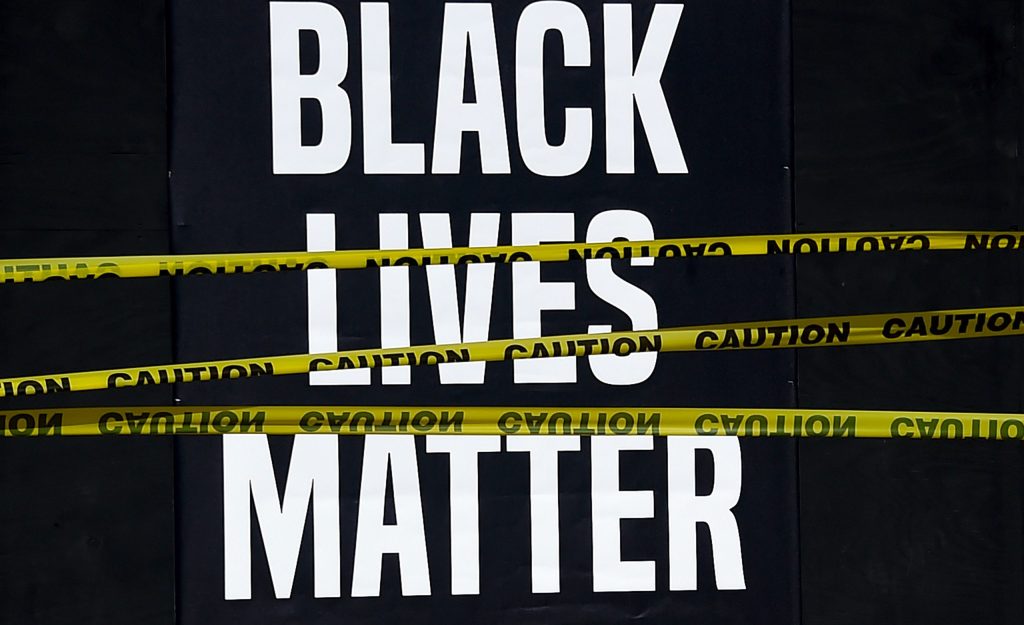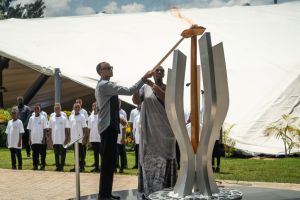The treatment of black people, particularly by law enforcement, has become a principal point of protest in the western world. But little is said about the millions of black Africans mistreated by the ruthless security forces of authoritarian African regimes. If black lives matter regardless of where they are in the world, then it’s time to challenge the immensely privileged black African ruling elite that clings to power by persecuting its often-voiceless black African citizens.
The numbers tell the story. An estimated 5.4 million people or eight percent of the Democratic Republic of Congo’s population died in the 1997-2003 conflict at the hands of government security forces and non-state armed militia. DRC’s violence continues today, barely rating a paragraph in newspapers.
In Sudan, at least 12 percent of the population has died, mostly killed by the security forces of governments recognized and financially supported over the decades by wealthy nations (Two million in Sudan 1983-2005; 400,000 in Darfur; 382,000 in the South Sudan civil war). In Mozambique and Ethiopia, eight percent of the population at the time probably died in each country during the Cold War and its aftermath. In Uganda, Obote and Amin consigned seven percent of their people to a premature death. These are estimates because black African lives matter so little to those in charge, or the international community, that in most cases, no one is keeping count.
Now, it is the turn of Cameroon to be ignored. The Norwegian Refugee Council has described the devastation in this central African nation as the world’s most neglected displacement crisis for the second year running.
Cameroon has been ruled by President Paul Biya, age 88, since 1982. He continues to win elections that no international monitor considers free and fair. His country is ranked among the world’s most corrupt and repressive by Transparency International and Freedom House, respectively.
In 2016, Biya’s Francophone-dominated regime tried to impose French-speaking judges and teachers on the English-speaking regions, representing 20 percent of the population. The peaceful protests of Anglophones, proud of their Anglo-Saxon courts and schools, were crushed with what impartial human rights groups described as ‘disproportionate force’.
So many villages have been burned that the UN estimates 700,000 civilians (out of six million Anglophones) have fled to the bush and beyond. UNICEF says more than a million children are out of school. Local civil society groups believe 5,000 people have been killed, although the International Crisis Group, University of Toronto Database of Atrocities and other impartial sources have no accurate casualty numbers. Meanwhile, hundreds of opposition figures are imprisoned without due process.
After the brutal suppression of non-violent Anglophone demonstrations, armed militias emerged, demanding a sovereign country called ‘Ambazonia’. Rights monitors believe all sides behave with impunity, with unarmed civilians caught in the crossfire. The Biya regime held a meeting between the different sides in 2019, but it was dismissed by most Anglophones as a gesture to appease diplomats. This year, the Vatican offered to mediate peace talks, as has Switzerland’s Centre for Humanitarian Dialogue, but Biya pursues a military strategy, at huge cost to civilians.
On January 1, the US Senate endorsed the need for targeted sanctions on those implicated in human rights abuses. Yet, the UK and France, Cameroon’s former colonial powers, offer toothless appeals to obey international humanitarian law.
The developed nations must not hold back from criticizing African leaders such as Biya. The tiny, privileged African elite has little concern for its citizens. There will be no justice while the rich world panders to repressive tyrants, giving aid and signing deals with leaders who persecute their populations, trapping people in injustice, poverty and fear. We can hardly be surprised if bright, ambitious Africans leave these countries, heading for opportunity in Europe.
If the death of George Floyd matters, then we must listen to brave black African civil society groups and enforce international human rights laws — such as the ‘responsibility to protect’, a legal doctrine endorsed by Cameroon and most of the international community.
The UK and France must work with partners like the US and Canada to apply diplomatic pressure on the Biya regime. The aim should be inclusive peace talks, mediated by a third party, such as the Swiss and the Vatican.
When my African friends suggest there is a global conspiracy allowing African rulers to commit human rights abuses, I offer a harsher truth; the global north just doesn’t care. Support for Black Lives Matter is meaningless if the wealthy white world averts its eyes from the suffering of persecuted black Africans like those in Cameroon’s Anglophone regions and across the continent.
Rebecca Tinsley’s novel about Sudan, When the Stars Fall to Earth, is available in English and Arabic. This article was originally published on The Spectator’s UK website.


















